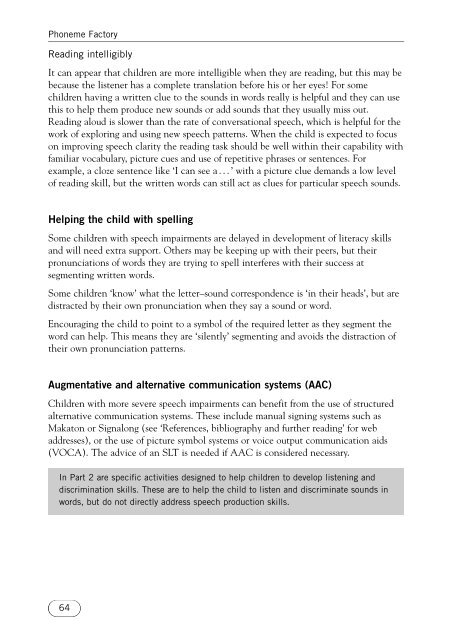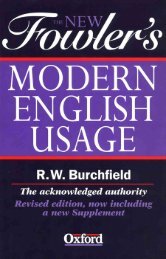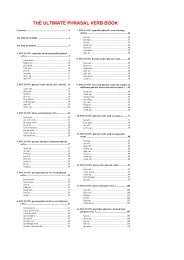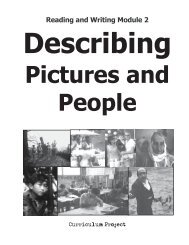Developing Speech and Language Skills - Noel's ESL eBook Library
Developing Speech and Language Skills - Noel's ESL eBook Library
Developing Speech and Language Skills - Noel's ESL eBook Library
Create successful ePaper yourself
Turn your PDF publications into a flip-book with our unique Google optimized e-Paper software.
Phoneme FactoryReading intelligiblyIt can appear that children are more intelligible when they are reading, but this may bebecause the listener has a complete translation before his or her eyes! For somechildren having a written clue to the sounds in words really is helpful <strong>and</strong> they can usethis to help them produce new sounds or add sounds that they usually miss out.Reading aloud is slower than the rate of conversational speech, which is helpful for thework of exploring <strong>and</strong> using new speech patterns. When the child is expected to focuson improving speech clarity the reading task should be well within their capability withfamiliar vocabulary, picture cues <strong>and</strong> use of repetitive phrases or sentences. Forexample, a cloze sentence like ‘I can see a ...’ with a picture clue dem<strong>and</strong>s a low levelof reading skill, but the written words can still act as clues for particular speech sounds.Helping the child with spellingSome children with speech impairments are delayed in development of literacy skills<strong>and</strong> will need extra support. Others may be keeping up with their peers, but theirpronunciations of words they are trying to spell interferes with their success atsegmenting written words.Some children ‘know’ what the letter–sound correspondence is ‘in their heads’, but aredistracted by their own pronunciation when they say a sound or word.Encouraging the child to point to a symbol of the required letter as they segment theword can help. This means they are ‘silently’ segmenting <strong>and</strong> avoids the distraction oftheir own pronunciation patterns.Augmentative <strong>and</strong> alternative communication systems (AAC)Children with more severe speech impairments can benefit from the use of structuredalternative communication systems. These include manual signing systems such asMakaton or Signalong (see ‘References, bibliography <strong>and</strong> further reading’ for webaddresses), or the use of picture symbol systems or voice output communication aids(VOCA). The advice of an SLT is needed if AAC is considered necessary.In Part 2 are specific activities designed to help children to develop listening <strong>and</strong>discrimination skills. These are to help the child to listen <strong>and</strong> discriminate sounds inwords, but do not directly address speech production skills.64











